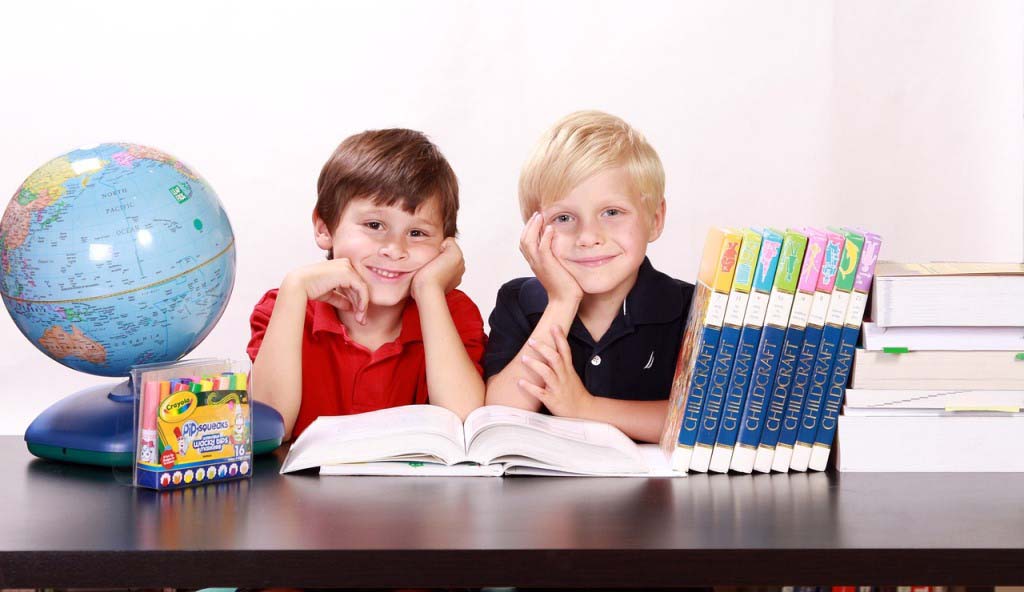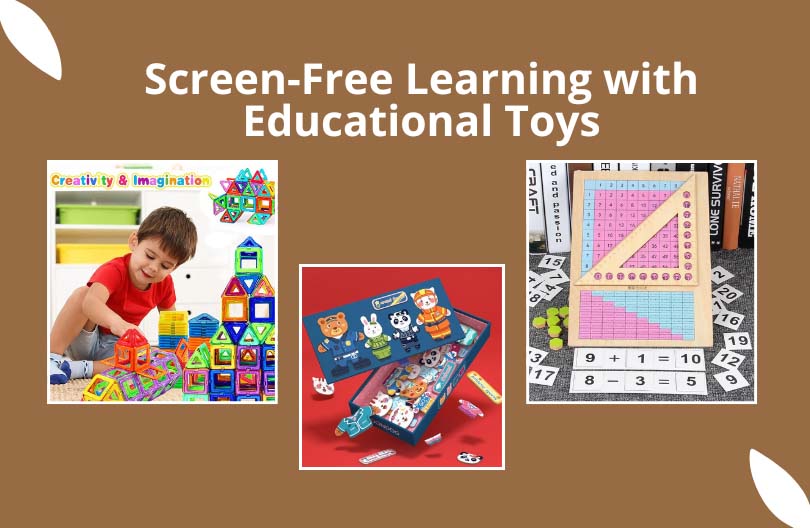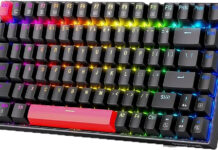In the digital world, children often spend more time in front of screens than engaging in hands-on play. While technology has its place, screen-free play is essential for a child’s overall development. Educational toys offer a perfect solution, combining learning with fun in ways that screens simply can not replicate. By engaging with educational games, children can develop critical thinking, problem-solving skills, and creativity, all while having fun.
Screen-free play does not just entertain, it nurtures curiosity, independence, and a love for learning. From wooden blocks to memory games, the possibilities are endless. Parents and caregivers are increasingly recognizing the value of educational toys, making them a staple in homes that priorities meaningful playtime.
Benefits of Educational Toys
Educational toys are more than just playthings; they are tools that support a child’s growth in numerous ways.
Cognitive Development
Educational toys challenge the mind and encourage problem-solving. Puzzles, sorting games, and number-based activities help children learn to think logically, recognize patterns, and make decisions. These toys lay the foundation for future academic skills, including math’s, science, and language.
Motor Skills Enhancement
Many educational toys require hands-on interaction, which helps refine both fine and gross motor skills. Building blocks, stacking toys, and craft sets allow children to strengthen their hand-eye coordination and dexterity while having fun. Developing these skills early contributes to better handwriting, coordination, and overall physical confidence.
Creativity and Imagination
Open-ended educational toys encourage imaginative play, allowing children to explore their creativity freely. When kids use building sets, craft kits, or role-playing toys, they develop storytelling abilities, creative thinking, and problem-solving skills. The imaginative world they create also helps in social and emotional development, as children learn to express feelings and navigate different scenarios.
Fun Screen-Free Play Ideas with Educational Toys
Keeping children engaged without screens might sound challenging, but educational toys make it easier than ever. Here are some screen-free play ideas that combine fun and learning:
Puzzle Games for Problem-Solving
Puzzles are classic educational toys that stimulate a child’s mind. Simple jigsaw puzzles for toddlers help with shape and colour recognition, while more complex puzzles for older children enhance spatial reasoning and logical thinking. Puzzles are not only fun but also instill patience and perseverance, teaching children that effort leads to accomplishment.
Building Blocks for Creativity
Building blocks and construction sets allow children to create anything they can imagine. From towers and bridges to entire cities, these toys develop both spatial awareness and creativity. They also encourage collaborative play when children work together, sharing ideas and problem-solving strategies.
Memory and Matching Games
Memory games improve concentration and cognitive skills while keeping the play engaging. These games help children enhance their recall abilities, recognize patterns, and develop focus. Matching cards, shape sorters, and number-based memory challenges are perfect for both solo and group play.
DIY and Craft-Based Toys
Craft kits and DIY toys are excellent for fostering creativity and fine motor skills. Children can paint, build, or design their own projects, boosting confidence and a sense of achievement. These toys also provide an opportunity for parents and children to bond, making learning a shared experience rather than an isolated one.
Tips for Choosing the Right Educational Toys
Selecting the perfect educational toy can feel overwhelming, but a few simple guidelines can make the process easier:
Age-Appropriate Toys
Always consider the child’s age and developmental stage. Toys that are too advanced can frustrate, while toys that are too simple may fail to engage. Age-appropriate toys ensure that children are challenged without feeling overwhelmed, supporting steady growth and learning.
Skill-Specific Learning
Identify the skills you want your child to develop. Whether it is cognitive reasoning, motor skills, creativity, or social interaction, there are toys designed to target each area. Choosing skill-specific toys helps create a balanced playtime experience that nurtures overall development.
Quality and Safety Considerations
High-quality educational toys are not only durable but also safe for children. Look for non-toxic materials, rounded edges, and sturdy construction. Quality toys last longer, reduce waste, and provide a safe environment for curious little hands to explore.
Conclusion
Screen-free play with educational toys is more than just a pastime; it is an investment in your child’s future. By incorporating puzzles, building sets, craft kits, and memory games into daily routines, children can develop essential skills while enjoying meaningful play.
Encouraging screen-free learning does not have to be difficult. With the right toys, children remain engaged, curious, and inspired, learning naturally through hands-on experiences. For parents seeking to make playtime both enjoyable and educational, exploring a diverse range of educational toys online can be a convenient solution. From classic wooden toys to modern learning kits, there is something for every child.
Make the most of playtime today by choosing educational toys that spark creativity, curiosity, and joy. Browse online to discover games and toys that turn learning into an exciting adventure. The right educational toys do not just entertain, they shape young minds for a brighter future.


















































































